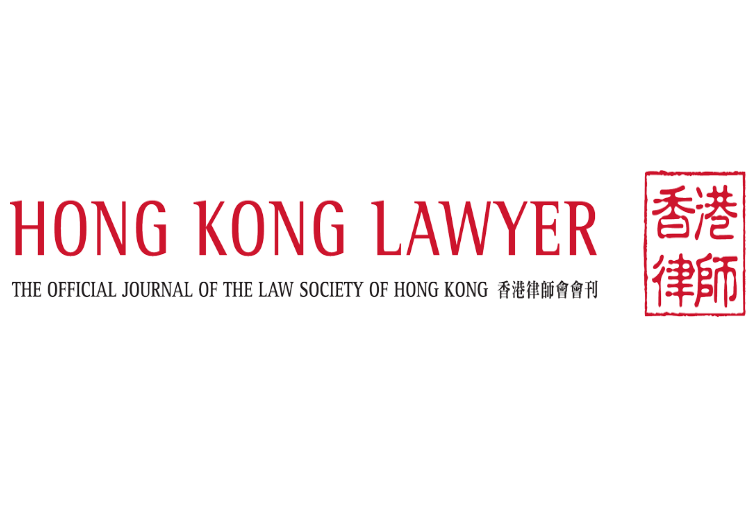本行陳柏豪律師於香港律師會 (The Law Society of Hong Kong)的官方會刊《香港律師》發布有關刑事法的文章,標題為《終審法院在許麗琪案的重要判決:刑事上訴法庭必須妥當地重審證據》。
中英文全文如下:
大律師和事務律師常老生常談地忠告當事人,經審訊後被定罪,即使感到受屈也通常欠缺上訴理據,而原因可謂千篇一律:裁判官沒有作出錯誤指示,以及上訴法官對那些就事實裁斷而提出的上訴不感興趣,對那些就證人的可信性的裁斷而提出的上訴就更是嗤之以鼻。
然而,基於終審法院在香港特別行政區 訴 許麗琪 – [2024] HKCU 1271案作出的判決,此等忠告不再湊效。該案判決大有可能成為當代的一個非常重要的判決,可能改變刑事案件在上訴層面的形勢。
一宗平平無奇的店舖盜竊案審訊,而裁判官並無明顯出錯
扼要地說,許麗琪案只是一宗在裁判官席前審訊的店舖盜竊案;裁判官拒絕接納被告人庭上的證供,不相信她只是忘記付款,最後裁定她罪名成立。
被告人不服定罪,根據《裁判官條例》(第 227 章)第 113 條,向高等法院原訟法庭提出上訴。在這類上訴案件,被告人大律師基於原審時證供謄本的詮釋,努力遊說上訴法官作出大不相同的事實裁斷,但這很可能只是又一次失望而還。
一如預期,這次上訴的確失敗告終。法官認為裁判官的裁斷沒有任何明顯出錯之處,依循當時現行法律原則,駁回上訴。
終審法院重新檢視(並更新)舊法:上訴無需裁判官明顯出錯
許女士再次不服,到終審法院叩門作終極上訴,向資深大法官們尋求兩條看似早已解答之問題的正確答案:
- 法庭在什麼情況下需重新審視原審定罪時所根據的證據;及
- 法庭何時可根據其對現有證據的看法而推翻原審時的定罪?
終審法院願在實質聆訊中聽取許女士的陳詞。法院審視經常被沿用的「明顯出錯」(Plainly wrong)標準。這個標準由原訟庭法官麥偉德(其後為上訴法庭法官)在香港特別行政區 訴 葉展基 [2012] 4 HKLRD 383案訂下。麥偉德法官在該案裁定,「處理上訴的法庭只會在確信裁判官的裁斷明顯出錯時,才會偏離裁判官對事實的裁斷以及對證人誠信的評估。」
經審議後,終審法院常任法官霍兆剛頒布了其他法官一致贊同的判詞,宣布「明顯出錯」標準非正確的法律。
終審法院拒絕接納「明顯出錯」標準,在判詞中訂明,正確的標準應該是當裁判官出錯時,批准上訴並推翻控罪是否「公正」 (Just),如屬公正的話,應當允許上訴。
「妥當」地進行重審並按公義和公平的原則作出裁定
更重要者,是即使找不到裁判官任何錯處,處理上訴的法庭仍然必須根據手頭上的證據,妥當地進行重審 (A proper rehearing)。上訴法庭必須根據證據得出自己的見解,並裁定控方的舉證是否確實毫無合理疑點地證明了控罪元素,如果不是,就必須判上訴得直。
話雖如此,終審法院承認上訴法官亦會面對實際困難,因為他們沒有耳聞目睹證人作供的優勢,不得不倚賴證供謄本。
根據《裁判官條例》第 113 條在上訴聆訊妥當地進行重審時,上訴法官必須小心謹慎,因為他∕她從來不曾耳聞目睹證人在證人欄作供,但仍有責任評估現有證據,得出自己的結論後,裁定上訴人罪名是否成立。
在許麗琪案,由於終審法院認為處理上訴案件的主審法官未有妥當地進行重審,因此終審法院在判詞中根據證據進行了重審。
終審法院用了七個段落扼要地敘述事實和證據,當中亦留意到她沒有犯罪紀錄,並無明顯理由干犯店舖盜竊,她可能只是忘記付款。她解釋事發時自己的注意力分散了,法庭小心地審視證據及事發經過後,認為這是合理解釋,終審法院因此將疑點利益歸她,裁定她罪名不成立。
上訴級法庭將更忙於秉行公義
這是終審法院一次重要判決,當中新的「公正」標準和「妥當」重審的嚴謹要求,還許女士一個清白的同時,亦可能為辯方大律師所樂見。
將來被定罪的被告人可能更傾向於提出上訴,尋求由上訴法官重審證據和事實,期望上訴法院的法官可以得出一個與原審時不一樣的結論。
固然,上訴法院的工作本來已經繁重,根據此判決工作量可能還會增加。然而,當上級法院處理上訴時,確實對手頭案件的事實和證據感興趣,亦準備按公正的原則,在需要時秉行公義裁定上訴得直,這是絕對值得稱讚的高尚之舉。
Title: CFA Landmark Ruling in Hui Lai Ki: Criminal Appellate Courts Must Properly Rehear Evidence
Time and again, counsel and solicitors advise lay clients aggrieved by a conviction after a trial not to appeal. The advice quite invariably points out that there was no misdirection by the magistrate, and that appellate judges are rarely interested in appeals on facts, especially on the credibility of witnesses.
Such advice is no longer good, in light of the Court of Final Appeal’s judgment in HKSAR v Hui Lai Ki (許麗琪) – [2024] HKCU 1271, which may well become the most important judgment of our time which could reshape the criminal landscape at the appellate level.
Just a shoplifting trial and the magistrate not plainly wrong
In gist, Hui Lai Ki was just another shoplifting trial before a magistrate, who, in convicting the defendant, rejected her testimonial evidence and did not believe that she simply forgot to pay.
An appeal took the case to the Court of First Instance of the High Court under section 113 of the Magistrates Ordinance (Cap. 227). It was just another probably futile attempt at convincing an appellate judge to make vastly different fact findings based on counsel’s interpretation of the transcript of testimonies.
Futile indeed it was. The judge followed the prevailing jurisprudence and dismissed the appeal, having found nothing plainly wrong in the magistrate’s findings.
The Court of Final Appeal: revisiting (and replacing) old law
But Ms. Hui knocked on the doors of the Court of Final Appeal, and tasked the senior judges with the seemingly long-settled questions of:
- In what circumstances is the court bound to re-assess the evidence upon which the conviction was based; and
- When is the court justified in overturning such conviction on the basis of its own view of the available evidence?
The Court of Final Appeal would hear Ms. Hui in a substantive hearing. The Court examined the much followed “plainly wrong” test laid down by McWalters J (later McWalters JA), who in HKSAR v Ip Chin Kei [2012] 4 HKLRD 383 held that “the appellate court will only depart from a magistrate’s finding of fact or determination of a witness’s credibility if satisfied that it is plainly wrong.”
After consideration, Mr. Justice Fok PJ delivered a unanimously agreed judgment, and the highest court pronounced that the “plainly wrong” test was no good law.
The CFA’s judgment, in rejecting the “plainly wrong” test, stipulated the correct test should indeed be whether it is “just” to allow an appeal and quash the conviction in view of the magistrate’s error.
Conducting a “proper” rehearing and ruling as justice requires
More importantly, even without identifying any error made by the magistrate, the appellate court must still conduct a proper rehearing based on the evidence at hand. The appellate court must come to its own view and rule on whether or not the prosecution has indeed proven beyond reasonable doubt, and if not, the appeal must be allowed.
The above being said, the Court of Final Appeal acknowledged the difficulties faced by appellate judges who do not have the advantage of watching witnesses testifying first-hand, and would have to rely on transcripts.
In conducting a proper rehearing at an appeal hearing under section 113 of the Magistrates Ordinance, an appellate judge would have to exercise caution that s/he never heard the witnesses from the witness box, but is nonetheless duty-bound to assess the available evidence, and come to his or her own conclusion on whether s/he would acquit or convict the appellant.
The Court of Final Appeal found that the judge in the magistracy appeal hearing failed to conduct a proper rehearing, so it went on to conduct one.
In 7 paragraphs succinctly reciting the facts and evidence, the Court found that Ms. Hui as a person of clear record, who had no apparent reason to engage in shoplifting, may well have simply forgotten to pay. Her explanation of being distracted at the time was a plausible explanation and the Court thus gave her the benefit of the doubt and acquitted her.
Appellate courts busier administering justice
Having cleared Ms. Hui’s name, this important CFA judgment, with the new “just” test and the stringent requirement of a “proper” rehearing, may be much welcomed by defence counsel.
Future convicted defendants may be more inclined to have the evidence and facts placed before an appellate judge for a rehearing in the hope that the senior judge may reach a different conclusion.
While the already busy higher courts may need to find ways to handle the potential extra workload, with appellate courts that are indeed interested in the facts and evidence of the case at hand and are prepared to allow an appeal where justice requires, it is only noble and admirable.
